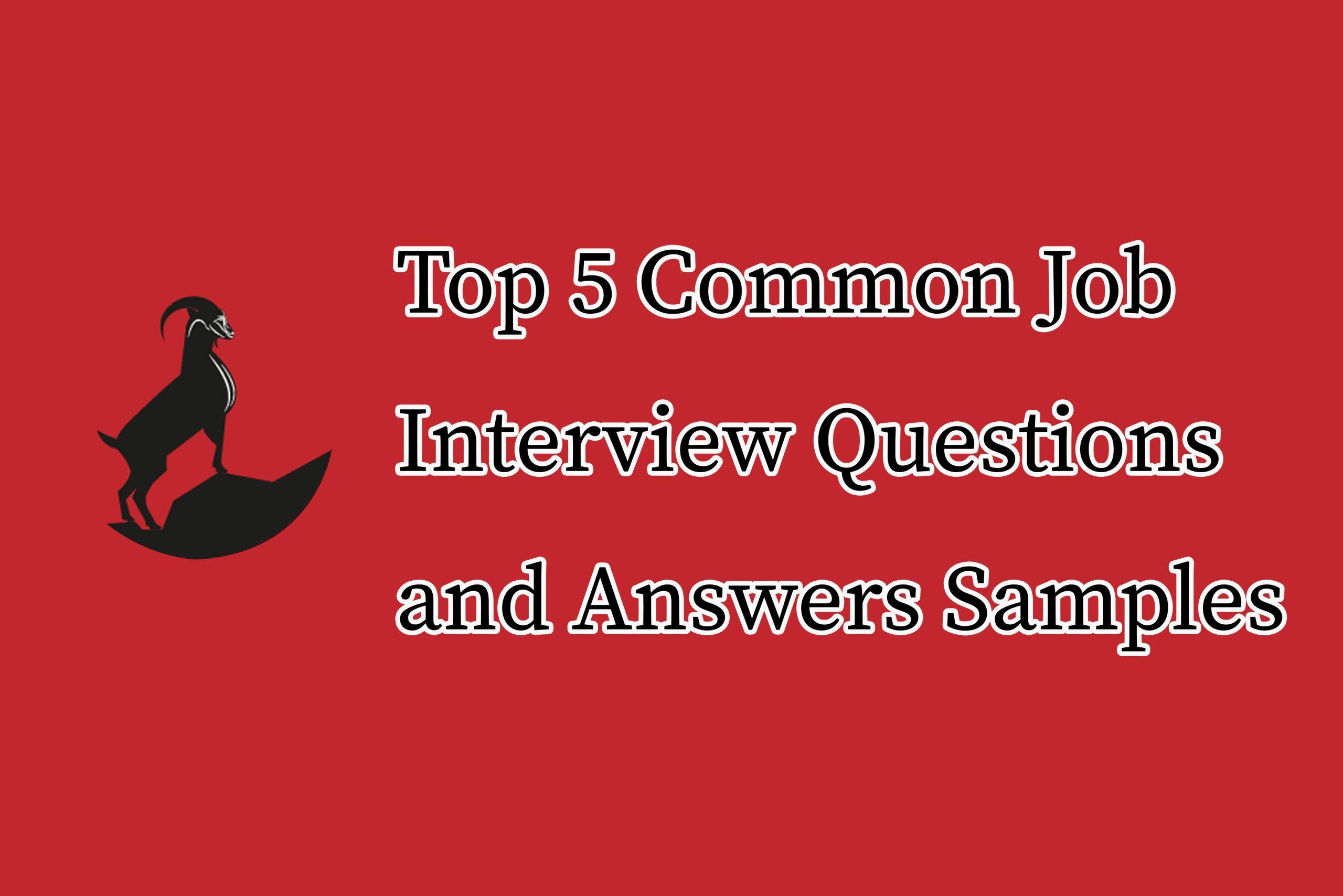
Practice and get comfortable with these Top 5 Common Job Interview Questions and Answers Samples before our interview and we’ll feel more confident while giving much better answers. We recommend spending some time getting comfortable with what we might be asked, what hiring managers are really looking for in our responses, and what it takes to show that we’re the right man or woman for the job. If you Are looking for more questions you can also read our [Top 12 Common Job Interview Questions and Answers] article.
1. What do you think we could do better or differently?
No matter what role we’re interviewing for (engineering, sales, marketing) we should always use
the product before our first interview (and ideally, a few times).
If hired, our goal will be to create value for the people who use that product, and being a user
ourself is the first step.
Doing this will also help us determine whether we can be passionate about the company and
product as well as convey that passion to our interviewer.
Now that we’re familiar with the product, be ready with ideas for how we’d like to improve it in
our role.
What new features would we be most excited to build?
How would we engage users (or re-engage existing ones)?
How could the company increase conversions?
How could customer service be improved?
When we’re interviewing with a start-up, our goal is to ensure that the job is a great fit for us,
and to convey that to our interviewer as well.
When we do, we’ll be in a better position to negotiate our offer and get started once we accept
It is full of ideas on ways to hit the ground running.
2. Are you planning on having children?
Any questions related to our family status are technically illegal, but employers often ask them to
Get a read on our future commitment to the job and company.
Tailor our answer to speak to that concern, gracefully avoid the illegal part of the question, and
turn the conversation back to our job-related strengths.
This answer sample assures the interviewer that we’re committed to our professional growth, but
doesn’t promise them anything in terms of our future—and lets us steer the conversation back to
a job-related topic.
Good answer sample:
“You know, I’m not quite there yet. But I am very interested in the career paths at your company.
Can you tell me more about that?”
3. What do you like to do outside of work?
If someone asks about our hobbies outside of work, it’s totally OK to open up and share what
really makes us tick.
(Do keep it semi-professional, though: Saying we like to have a few beers at the local hot spot on
Saturday night is fine. Telling them that Monday is usually a rough day for us because we’re
always hungover is not.)
It goes without saying that we should find out everything we can about our potential place of
employment ahead of time.
Facebook, Twitter, LinkedIn, and the company’s website and blog all provide us with
information that will help us go to a job interview confident and prepared.
Before we go, try to find out who we’ll be meeting with, whether it’s an HR representative, our
would-be boss, or the CEO.
Why? Our interview answers and conversation topics should vary based on the person we’re
speaking with, and by knowing who we’ll be talking to, we can spend time thinking through how
We might connect with each of these people.
4. What are your salary requirements?
Unfortunately, this question is left off of many lists of job interview questions and answers
samples.
But it’s extremely important, and the wrong answer here can cost us thousands of dollars in the
negotiation later on.
They do not know if we’re any good or if they even want to hire us.
So we can’t command a high salary right now. If we go too low with our price, they’ll hold us to
it later.
Go too high? We’ll scare them off before they even know what we’re worth!
Stand our ground and tell them we don’t have a number in mind yet or aren’t sure.
Good answer sample:
“Right now I’m focused on finding a job that’s the right fit for my career.
Once I’ve done that, I’m willing to consider an offer you feel is fair, but I do not have a specific
number in mind yet, and my priority is to find a position that’s a great fit for me.”
5. Do you have any questions for us?
Do not ask about salary, benefits, time off, or anything that isn’t related to the work.
Wait for them to bring it up, or until we know they want to offer us the position.
If we don’t ask good questions to each person we speak with, we’re very unlikely to get hired.
Good answer sample:
“Yes, I have a couple of questions actually. The first thing I wanted to ask: Is this a newly created position, or did somebody hold this role in the past? And if so, what did that person go on to do after this position?”

